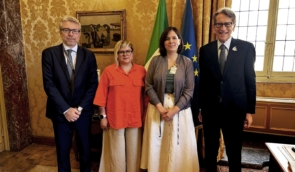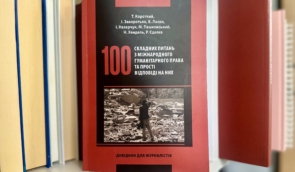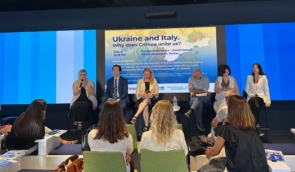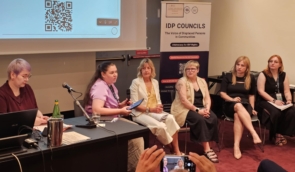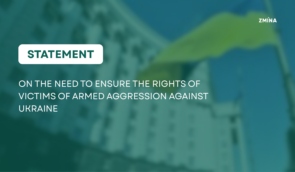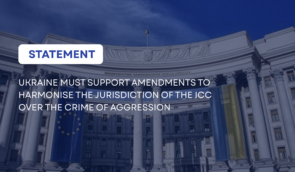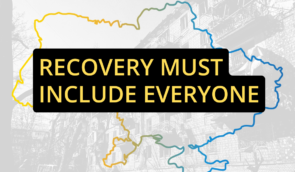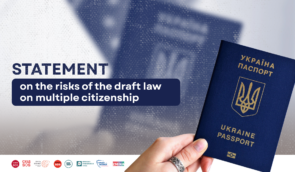101 incidents of persecution of activists recorded in Ukraine last year
In 2020, human rights defenders recorded 101 cases of attacks and incidents of persecution of civil society activists in Ukraine. Fight against corruption, protection of the rights of LGBTQ people and environmental protection were the most dangerous types of activism.
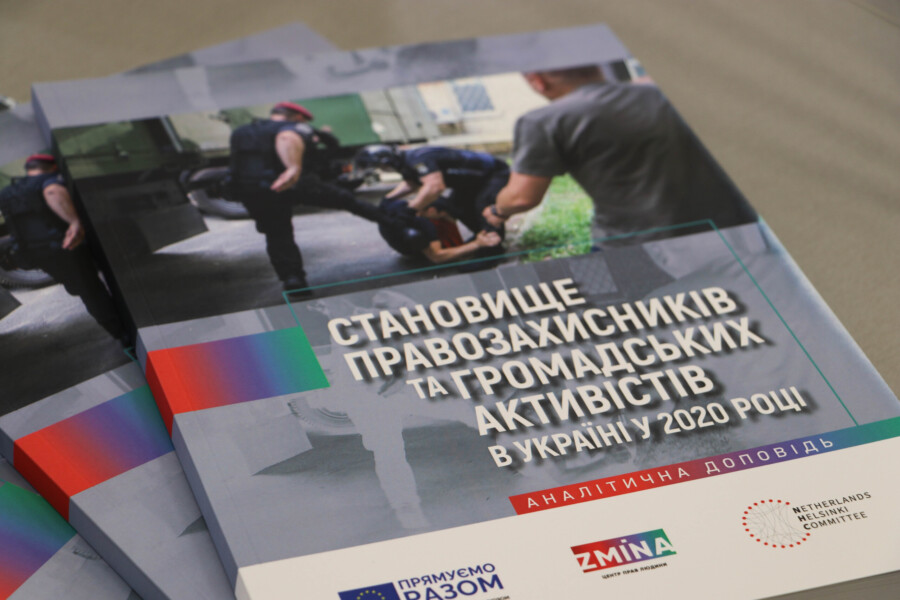
The data were released by the ZMINA Human Rights Centre as part of the presentation of the annual report on persecution of civil society activists and human rights defenders in 2020 during a press conference in Kyiv. The report was prepared within the framework of the EU-funded project Increasing the Role and Protection of Human Rights Defenders in Ukraine
According to ZMINA researcher Anastasiya Moskvychova, the most common documented incidents were attempts to intimidate activists (22), physical assaults (21) destruction of or damage to their property (18). In only four of the 21 incidents, suspected attackers were served with the notices of charges.
The largest number of incidents took place in Kyiv city (44) and Odesa region (10), Kyiv region (8), Dnipropetrovsk region (8) and Kharkiv region (6).
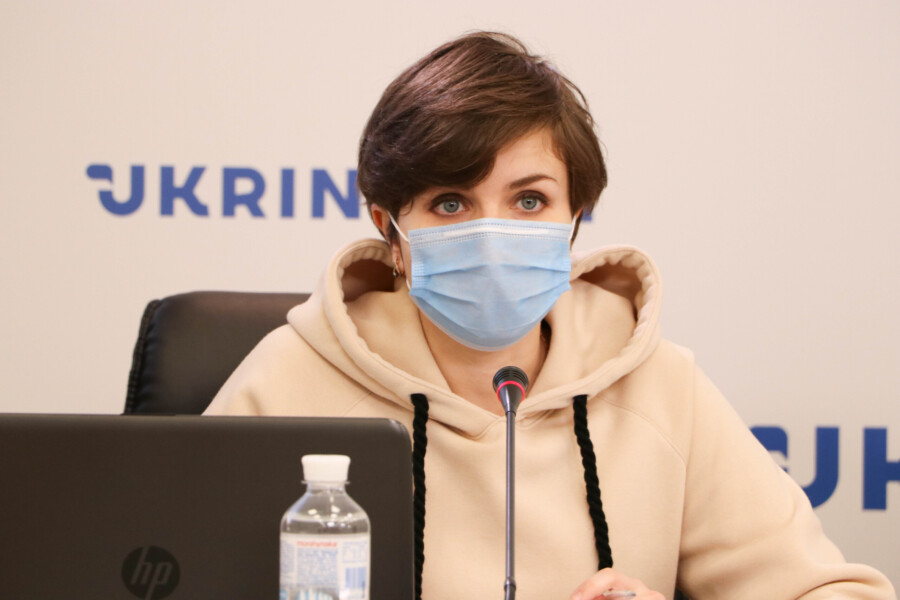 Anastasiya Moskvychova
Anastasiya MoskvychovaThe authors of the report note that despite coronavirus quarantine restrictions across the country, there were no fewer cases of persecution in 2020. Moreover, during this period, researchers recorded abuse of attempts to held activists administratively liable for peaceful assemblies, though most of those protocols were revoked by the courts.
Activists are also often subjected to legal prosecution and defamation campaigns are launched against them, with ten and nine such incidents in 2020, respectively. So, in February last year, the police opened proceedings over alleged embezzlement of $149 million in international technical assistance with the participation of the Anti-Corruption Action Center (ACAC) and the patient-led Charitable Organization “100% Life”. The proceedings were opened at the suit of Ukrainian lawmaker Andriy Derkach.
In April 2020, a defamation campaign was launched simultaneously on various media platforms, accusing ACAC head Vitaliy Shabunin and head of the coordination council of Charitable Organisation “100% Life” Dmytro Sherembey of “misappropriation” of funds. However, no evidence was presented in the media reports.
“We are drawn into twelve lawsuits and four criminal cases on fake charges. But all this is just a futile attempt to slow down the work of our organisation and shut our mouths. At the moment we have a full-fledged plan of war and we will win all the lawsuits – nothing and nobody can stop us!” Dmytro Sherembey said.
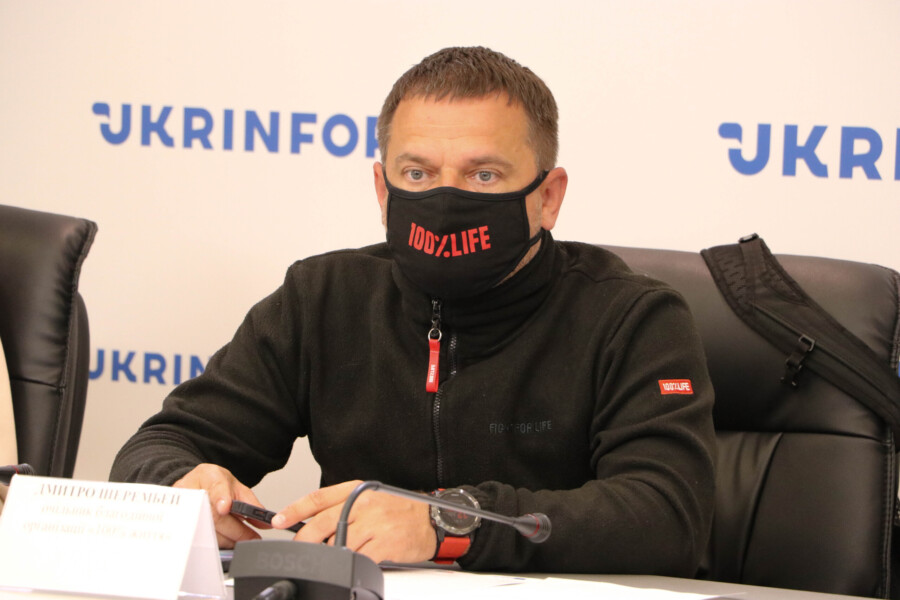 Dmytro Sherembey
Dmytro SherembeyAn incident of pressure on activists defending the rights of LGBTQ people occurred in Odesa in September last year. There, supporters of the right-wing radical organization “Tradition and Order” repeatedly hung propaganda posters at the entrance to the Queer home Odesa community centre, clogged with matches the keyhole in the door and glued it, and so on. This series of incidents continued further in October 2020 due to police inaction.
The organisation considers it an attempt to intimidate activists. The head of the centre, Anna Leonova, says that she appealed to Odesa police several times with relevant statements, but they neither initiated criminal proceedings nor drew up reports on administrative offences.
 Anna Leonova
Anna LeonovaEnvironmental protection is one of the most dangerous types of public activity. In December last year, unknown people twice set fire to a hayloft at the stable “Shcherbati Tsuhli” in the village of Prybirsk in Kyiv region, where a group of enthusiasts is trying to restore the almost extinct breed of Polissya horses. The injured environmental activist Yuriy Yahusevych, who owns a stable and breeds these horses, links the arson to his publication, in which he drew attention to the work of heavy machinery on the banks of the Teteriv River in Prybirsk. According to the activist, after the publication was released, he began to receive verbal threats from the initiator of the works sent through different people.
Yuriy Yahusevych believes that the inaction of the police and the refusal to start proceedings after the first arson made the attackers believe that they would get away with a new attack. “The police are a monopolist in the field of law enforcement, i.e. we still have Soviet totalitarian laws that do not provide a full-fledged opportunity for self-defence, starting from a ban on armed self-defense and ending with an inability to gather files and evidence for the court. We are completely in the grip of the system that does not work,” the activist is convinced.
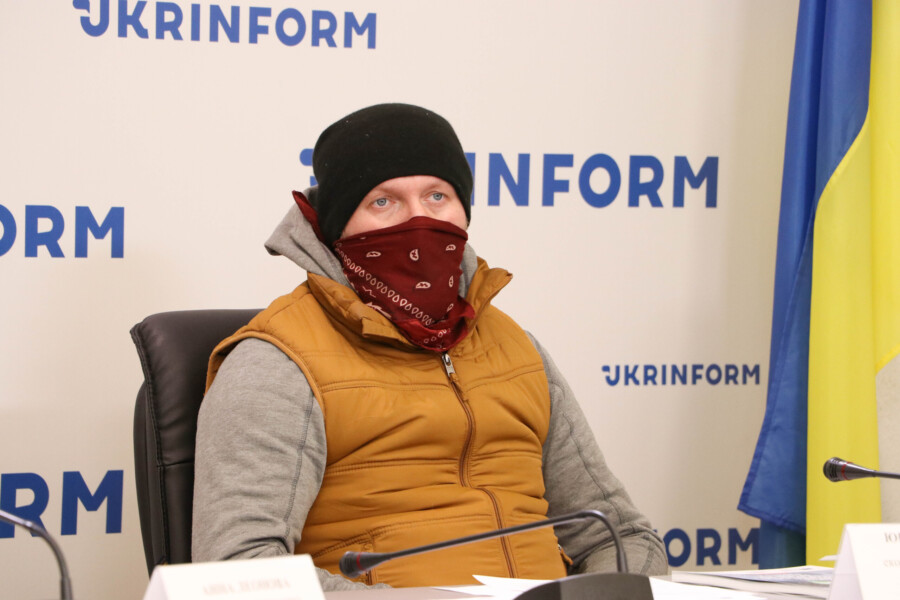 Yuriy Yahusevych
Yuriy YahusevychHuman rights activists also mentioned 12 bills that were registered in the Verkhovna Rada in 2020. If these bills are passed, they will pose a threat to the freedom of association and peaceful assembly, provoke discrimination against human rights defenders and civil society activists and promote spread of homophobic ideas. Moreover, according to ZMINA legal analyst Olena Vynohradova, each of the bills could become a flagrant violation of international human rights standards and Ukraine’s commitments to the international community.
“At least a third of these bills are patterned after the ideas of our northern neighbor, the aggressor country, which not only fills the information space of Ukraine with its propaganda, but also tries to cram its toxic ideas into our legislation. That is why it is extremely important to talk about such bills so that the society understands their danger and is aware of the consequences of their adoption,” Vynohradova added.
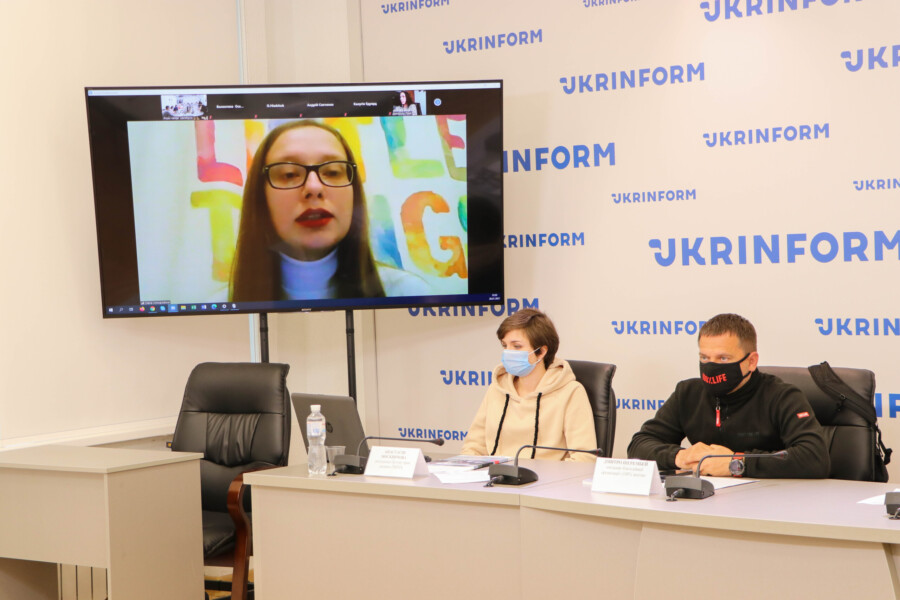 Olena Vynohradova
Olena VynohradovaThe report is available in Ukrainian and English. Video of the presentation can be viewed here.
The project “Increasing the Role and Protection of Human Rights Defenders in Ukraine” is implemented by the ZMINA Human Rights Centre in partnership with the Netherlands Helsinki Committee with the financial support of the European Union. The project focuses on legal and operational protection and support for human rights defenders and anti-corruption activists in Ukraine, enhancement the positive role of human rights defenders in society and formation of links between them, increase in the number of effective investigations into attacks on human rights defenders and activists, and more. The project implementation lasts from 2019 to 2022.
If you have found a spelling error, please, notify us by selecting that text and pressing Ctrl+Enter.

